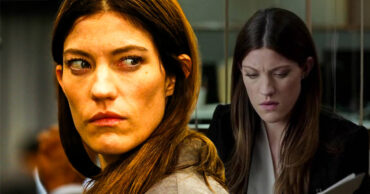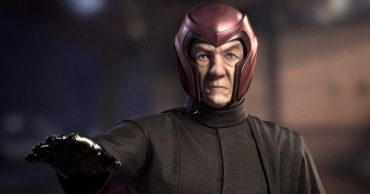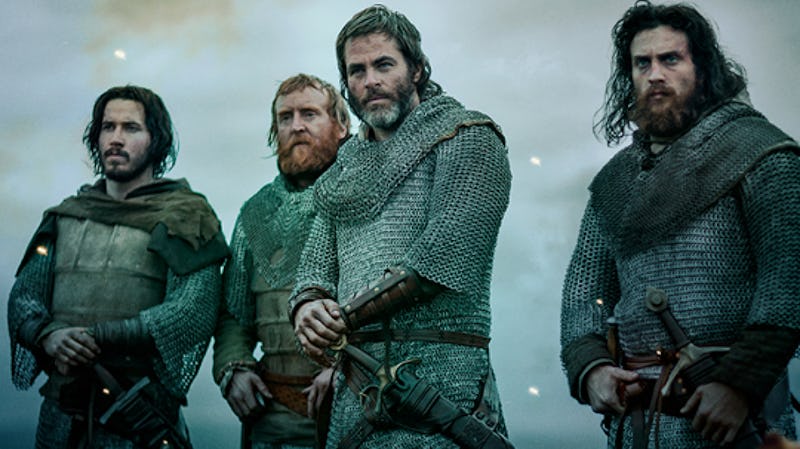
cast: Outlaw King
History is told by more than the victor of any engagement, and the stories of some cultures and nations have been told by many people who see things in one light or another. The story of Robert the Bruce is one that a lot of people have seen in various movies and perhaps even read about in historical texts. The unfortunate question that one has to ask most of the time is whether or not these tellings are accurate or if they’re the fantasy created for the sake of entertainment. One truth about history is that it’s not always as exciting as filmmakers would like it to be, and there are situations that, throughout history, have taken years to accumulate and are over in a very short span of time. The long history that lies between Scotland and England is one that gets bloody on more than one occasion and has more than its share of villains and heroes depending upon who is asked and what point of view one sees things from. In Outlaw King, the story of Robert the Bruce is told in a way that’s been seen before, kind of, but is still one that feels a little inspiring in some ways.
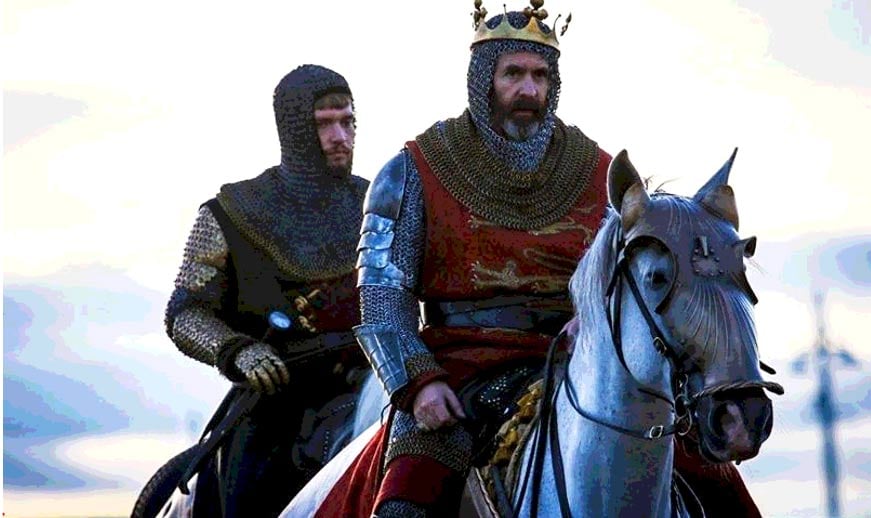
credit: Outlaw King
The idea of Scotland swearing fealty to England in any way is still cringe-worthy.
For one reason or another, the English don’t come off looking that great in historical movies, and it usually has to do with their rulers being made to look like tyrants and dictators that are more than willing to harm anyone and everyone they need to in order to get their way. The continual back and forth between Scotland and England throughout history has been documented in many different ways, but this movie gets just as dirty as many others as it initially shows Robert the Bruce, played by Chris Pine, swearing his loyalty to King Edward I, who comes off as a rather cruel and capricious man. The moment he’s done accepting fealty, he orders a nearby castle to be destroyed before they’re allowed to surrender. In other words, England is being painted as a villainous country once again, thanks to the man who rules it.
There are a few inaccuracies, but that’s to be expected.
Looking through the history books, it’s very easy to think that England is given a bad reputation for a number of reasons, not the least of which is their continued need to expand and take over just about anything and everything they felt would add to their empire. There’s no doubt that the rulers of this country had their reasons and their justifications, but the type of expansion that went into building this country wasn’t always nice, nor was it kind to those who had already settled within the areas that England desired. Movies such as this are often made to show that the wars that went into creating one nation or another were brutal beyond belief. But when the truce is broken, when Robert and his brothers find a reason to stand against King Edward I, their course of action is hard to justify at times since it involves using tactics that aren’t always sound but are effective.
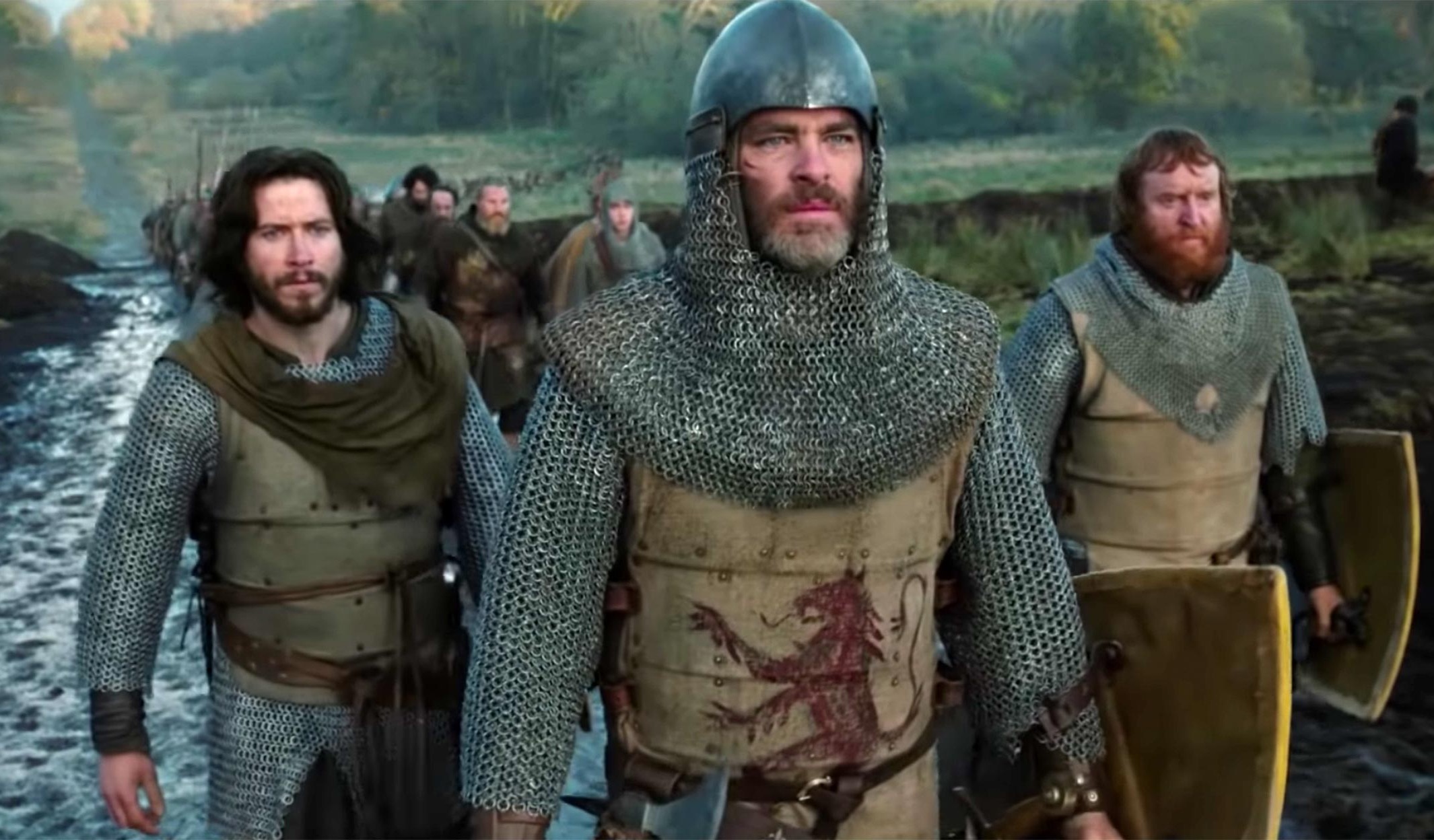
credit: Outlaw King
The brutality was to be expected.
History might not always be exciting, but it also isn’t nice since history speaks of those who were run over and cut to pieces by others who were ready and willing to deny people the freedoms they were born with since they were ordained by God to rule over other people. The English were known to be brutal, as William Wallace’s horrible death was a sign to others to warn against rebellion, the same type of rebellion that Robert the Bruce would eventually lead as he assumed the role of King of Scotland, which closely followed his murder of the only rival to the crown that he had. It’s fair to say that Robert’s hands aren’t clean in this movie, but the measures taken by the English are even worse since, upon flying the dragon banner, it becomes unnecessary for the English to observe the rules of war and chivalry goes out the window.
It’s a bloody brawl right up until the end.
One thing that is usually evident in warfare, or at least used to be, was that knowledge of the battlefield was always of great importance since those who knew the lay of the land were those who could use it to the greatest advantage. This is discovered during the final battle when Robert and his much smaller army prepare the battlefield so that it might work against their enemies. The plan works as the English find that the traps laid by the Scottish impede their forward progress and make it possible for the Scots to take them by surprise and seriously reduce their numbers. When the English retreat, this is seen as a victory, and the movie ends soon after.
It was a fun movie, but after Braveheart, it’s bound to happen that everyone is going to question what’s real.
 Follow Us
Follow Us
